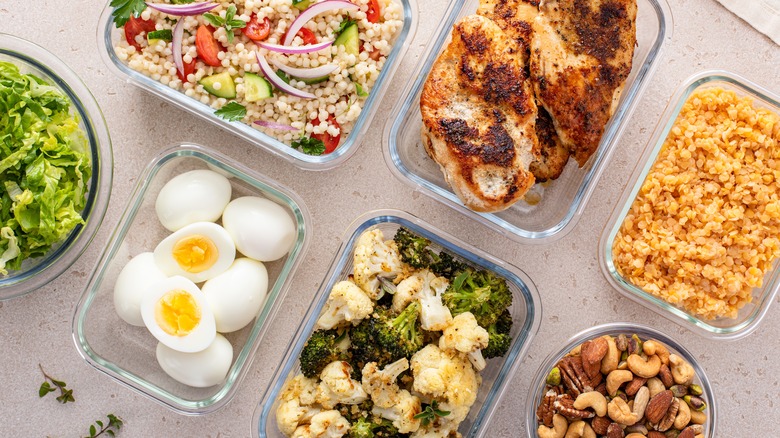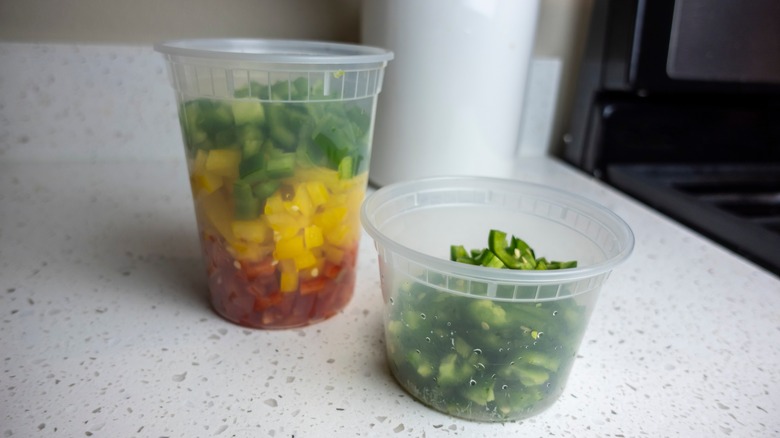Why You Should Ditch The Mason Jars When Meal Prepping
Mason jars had their meal-prepping moment — past tense intentional. While they are still a useful tool to store lettuce or peel hard-boiled eggs, these jars are simply not the best option for storing your food for the week, even if those layered salads do look pretty dang cute. Instead, follow the advice of every line cook and professional chef and get yourself some deli containers. In fact, you probably already have some lying around. These are the clear cylindrical plastic containers that you might have saved from your last pho order to-go.
The caveats of mason jars are that they are bulky, heavy, and breakable. Plus, the typical two-piece metal tops are easy to misplace and can get rusty. Since the jars are not easily stackable, they're not the most space-efficient choice, both in your fridge and your cabinet. And though they can technically go in the freezer, if a jar falls out or you accidentally overfill one (the liquid in food expands when frozen!), you'll be stuck with the cumbersome task of cleaning up glass shards.
Save mason jars for when you're storing bulk goods and want that cute vintage look, like for salt on your countertop, nuts and seeds on open shelves, or sugar in your coffee station. Stick to deli containers for meal prepping (and drinking water, if you want to feel even more like Jeremy Allen White in "The Bear").
Why deli containers are better for meal prepping
Functionality, affordability, and versatility are why deli containers should be your go-to for meal prep. Firstly, they are cheap: A set of 60 of containers in the three sizes is just over $20 on Amazon. Secondly, they are practical. The lids are one-size-fits-all and create a good airtight seal, so you can easily take them from home to other places without leaks. Plus, the stable design means that you can pile them up without worrying about a tumble — this is your cabinet's dream.
Standard deli containers come in one-, two-, and four-cup capacities, so you can easily portion a variety of raw ingredients or complete meals into each size. Their wide mouths also allow you to mix or prepare food right in the container. The one-cup containers are great for sauces or snacks, the two-cup kind are perfect for fruit-topped overnight oats or curry and rice, and the four-cup sizes are ideal for batches of grains or vegetables.
To be more efficient, take another cue from pro chefs and put a label and date on every deli container. Though it may be obvious, the simple act of writing down its contents keeps you aware of what you have on hand and when it goes bad. Plus, labeling is key for FIFO: The rule you need to store food like a chef. And if you were overambitious with your meal prep, your containers will be already labeled and ready for the freezer.


